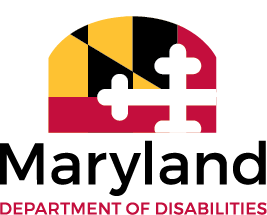As a parent, family member or guardian of a teen with a disability, you are in a position to help guide them in considering their future possibilities and explore their independence as they grow into being an adult. Your teen may seek you out for guidance or seek help in finding information and resources to help them plan for the future.
Here are some highlights on resources and information you may find helpful in working with teens in preparing for their future work and education goals.
Helpful Resources for the Whole Family
How To Become Debt-Free
Helpful suggestions on how to reduce your debt. Read How to Get Out of Debt.Save and Protect Your Money
You work hard for your money. Learn what to know and do from opening a bank account, using a debit card, making a budget, saving your money, taking out a loan, and more. Visit consumer.gov.Maryland ABLE Account
MD ABLE accounts are a new way to help individuals with disabilities save money and pay for qualified disability-related expenses without jeopardizing federal means-tested benefits such as SSI or Medicaid. Learn more about MD ABLE accounts.Changes in Benefits at Age 18
At age 18, youth who get SSI must go through two kinds of medical reviews to keep their benefits. Learn more about these medical reviews or Age 18 Redetermination.ALL YOUTH CAN and SHOULD WORK!
Individuals with disabilities, particularly youth, can and should work. Learn more about youth working with disabilities here.Education
Planning Your Teen's Future
Transition planning becomes part of your teen's Individualized Education Program (IEP). Learn more about Transition Programs.Parents' Roles in Transition Planning
Parents of youth with disabilities should begin thinking about transition (planning for adulthood) as early as possible. Although the formal process of transition planning doesn’t begin until high school, it is helpful to begin thinking about it much sooner. Get a wealth of information about middle and high school transition planning.Maryland Higher Education Commission
The Maryland Higher Education Commission’s (MHEC) website provides guides about how elementary, middle, and high school students can prepare for postsecondary education as well as information about college searches and financial planning. Visit MHEC.Common Questions about Postsecondary Education
Transitioning from high school to postsecondary education after graduation can be exciting and challenging. Most students and their families have many questions. Find answers to your questions.Accommodations that are Available in College
Accommodations are available after high school, but they may be different. Accessing accommodations is the teen's responsibility. Learn About Accessing Accommodations After High School.Postsecondary Education for Students with Intellectual Disabilities
Read personal stories from students, families, and postsecondary education professionals related to postsecondary education for students with intellectual disabilities. Visit Think College.Helping Teens Prepare for their First Job!
Helping Teens Build Work Skills for Job Success
This InfoBrief addresses the need for youth to acquire work skills and offers strategies parents and families can use to work with their youth to develop skills that lead to success on the job. It also includes information on how to incorporate work skill development into school documents, such as the Individualized Education Program (IEP).
Tips for parents and families on helping teens build work skills.
Employment Supports & Services
There are agencies and services available to help your teen find a job. They include: Developmental Disabilities Administration (DDA). Behavioral Health Administration (BHA), Division of Rehabilitation Services (DORS), and the American Job Centers.
Learn more about these programs and the services they can provide.
Disclosure
Disclosure is telling someone something that they did not know about you, such as having a disability. Your teen may need to consider whether or not to talk with an employer about their disability. One reason to talk about their disability is if they will need an accommodation to do the job. Learn more about disclosure.Understanding the Americans with Disabilities Act (ADA)
Your teen has certain rights and responsibilities under the Americans with Disabilities Act (ADA). There are laws that protect them from discrimination in the workplace.
Learn more about your teen's rights and responsibilities.
Forms of Identification Teens will Need
Employers will ask for your Social Security number (SSN) and an official identification such as your social security number, certified birth certificate, or Maryland Identification Card.
Learn more about these forms of identification and how to obtain them.
Helping Teens Apply for a Job
There are a few steps involved in getting a job. Your teen may need to fill out an application form, provide a resume, and write a cover letter.
Get tips on how you can help your teen create these documents.











